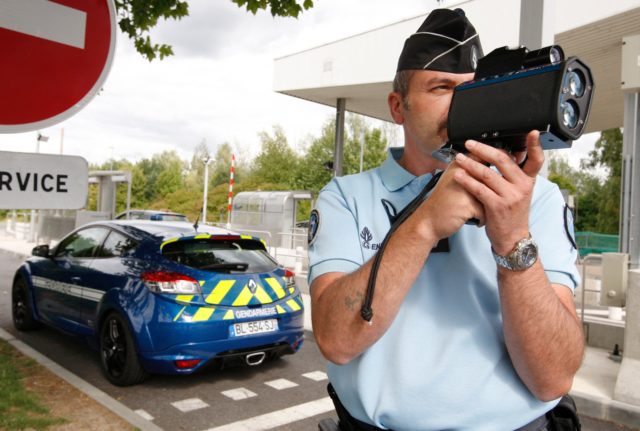Meloni’s Brothers of Italy party, which has neo-Fascist roots, came top in Italy’s 2022 general election with 26 percent of the vote.
It is polling at similar levels ahead of the European elections on from June 6-9.
With Meloni heading the list of candidates, Brothers of Italy could exploit its national popularity at the EU level, even though EU rules require that any winner already holding a ministerial position must immediately resign from the EU assembly.
“We want to do in Europe exactly what we did in Italy on September 25, 2022 — creating a majority that brings together the forces of the right to finally send the left into opposition, even in Europe!” Meloni told a party event in the Adriatic city of Pescara.
In a fiery, sweeping speech touching briefly on issues from surrogacy and Ramadan to artificial meat, Meloni extolled her coalition government’s one-and-a-half years in power and what she said were its efforts to combat illegal immigration, protect families and defend Christian values.
After speaking for over an hour in the combative tone reminiscent of her election campaigns, Meloni said she had decided to run for a seat in the European Parliament.
READ ALSO: How much control does Giorgia Meloni’s government have over Italian media?
“I’m doing it because I want to ask Italians if they are satisfied with the work we are doing in Italy and that we’re doing in Europe,” she said, suggesting that only she could unite Europe’s conservatives.
“I’m doing it because in addition to being president of Brothers of Italy I’m also the leader of the European conservatives who want to have a decisive role in changing the course of European politics,” she added.
In her rise to power, Meloni, as head of Brothers of Italy, often railed against the European Union, “LGBT lobbies” and what she has called the politically correct rhetoric of the left, appealing to many voters with her straight talk.
“I am Giorgia, I am a woman, I am a mother, I am Italian, I am a Christian” she famously declared at a 2019 rally.
She used a similar tone Sunday, instructing voters to simply write “Giorgia” on their ballots.
“I have always been, I am, and will always be proud of being an ordinary person,” she shouted.
EU rules require that “newly elected MEP credentials undergo verification to ascertain that they do not hold an office that is incompatible with being a Member of the European Parliament,” including being a government minister.
READ ALSO: Why is Italy’s government being accused of helping tax dodgers?
The strategy has been used before, most recently in Italy in 2019 by Meloni’s deputy prime minister, Matteo Salvini, who leads the far-right Lega party.
The EU Parliament elections do not provide for alliances within Italy’s parties, meaning that Brothers of Italy will be in direct competition with its coalition partners Lega and Forza Italia, founded by Silvio Berlusconi.
The Lega and Forza Italia are polling at about seven percent and eight percent, respectively.



 Please whitelist us to continue reading.
Please whitelist us to continue reading.
Member comments